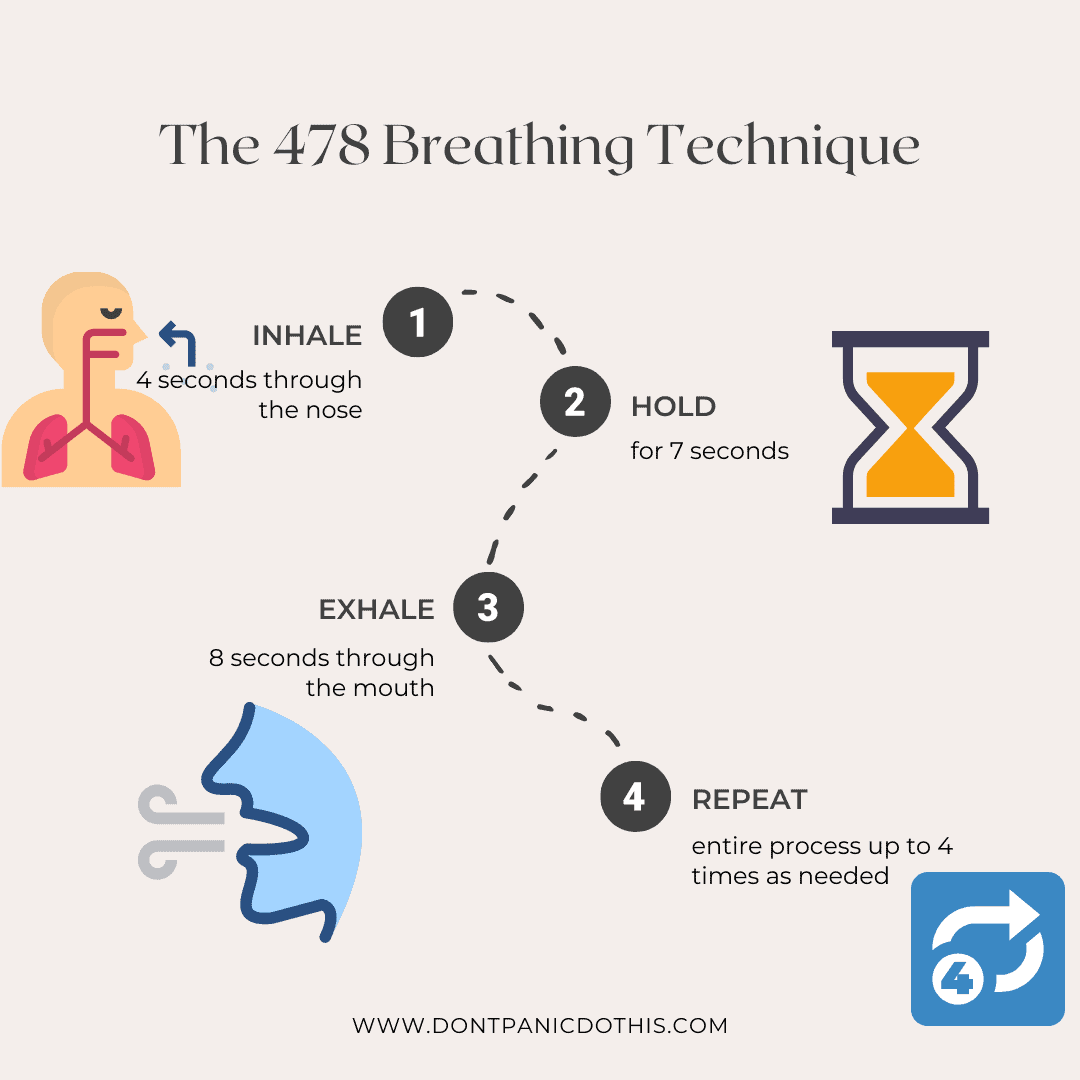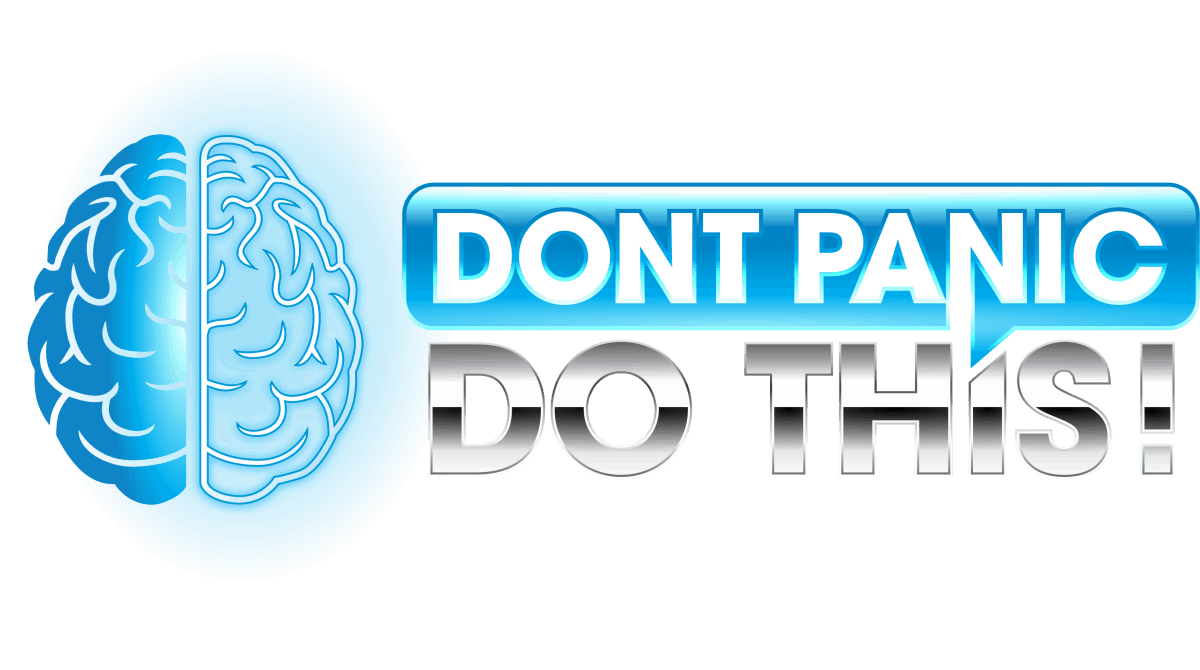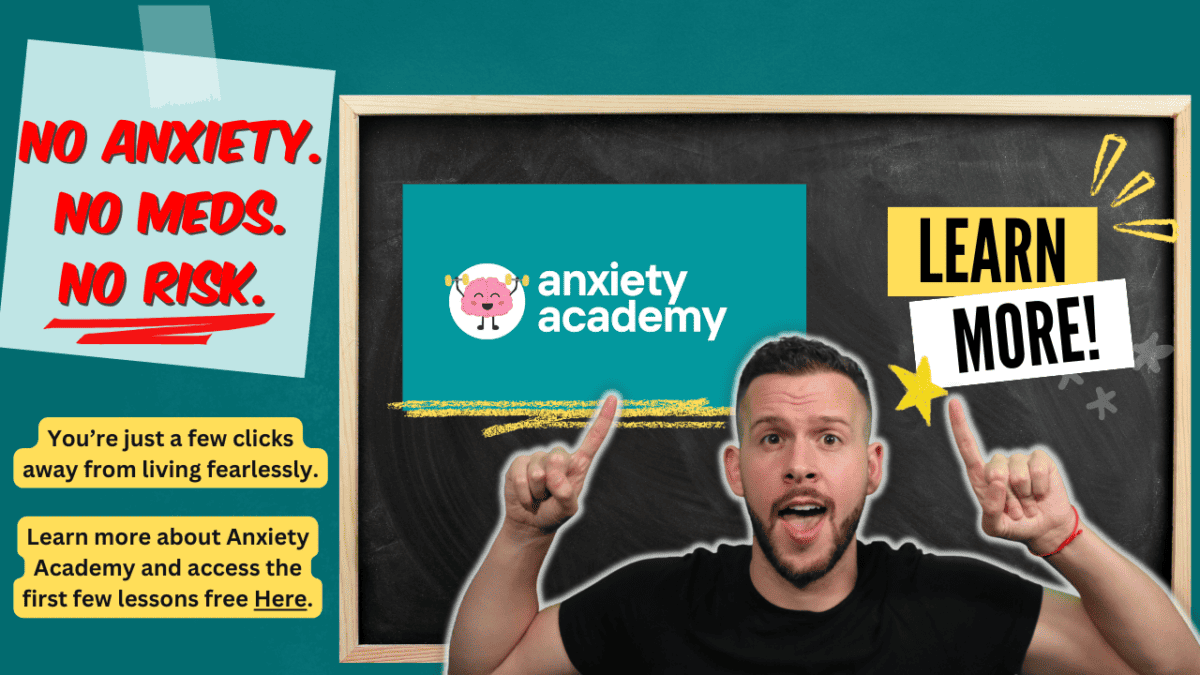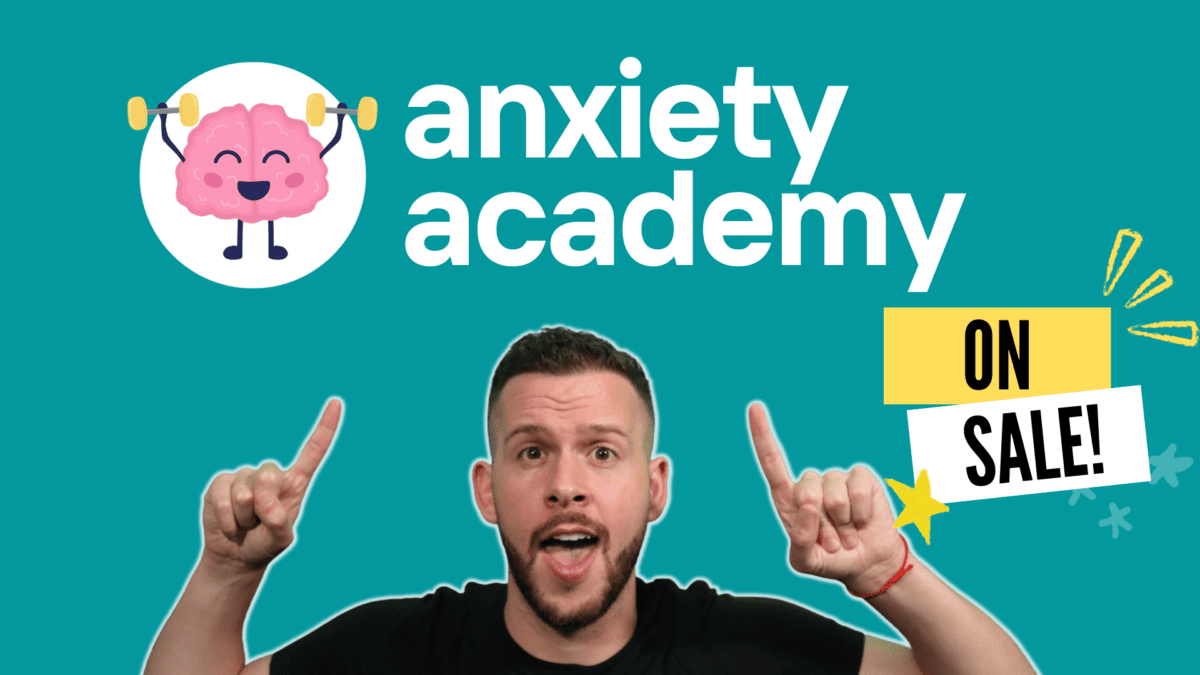During a panic attack, it’s helpful to know a few adaptive coping strategies for anxiety. Adaptive coping strategies are techniques used to directly decrease anxiety in a healthy way. Everyone should take some time to learn the following adaptive coping strategies for anxiety:
- Release Emotions by Journaling About Them
- Speak with a Friend or Professional
- Talk Through it With Yourself
- Solve the Problem by Thinking Logically
- Find Humor in Your Situation
- Breathe Deeply and Slowly (4-7-8 Breathing)
- Practice a Mindfulness Meditation
- Use Progressive Muscle Relaxation (PMR)
- Get Some Exercise
Implementing these anxiety coping mechanisms correctly can often be the difference between a panic attack and relaxation.
Keep reading for a full explanation of how to use each under stress.
9 Adaptive Coping Strategies for Anxiety
Adaptive Coping Strategies vs Maladaptive Coping Strategies
Just a quick note before we really dive in here.
There are many ways to deal with stress and anxiety.
Before deciding how to manage anxiety, it’s important to consider… Is your chosen coping mechanism an adaptive or maladaptive coping strategy?
Adaptive coping strategies are often healthier, more direct approachs to beat anxiety. This involves first taking an honest look at our emotions and understanding them for what they are. Then, we take steps to eliminate our anxiety long-term in the healthiest way possible.
Maladaptive coping strategies, however, are often far more detrimental to us in the long-term. These strategies include avoidance, dissociation, escapism, etc. Someone who is drinking alcohol every day to avoid anxious feelings is utilizing a maladaptive coping strategy.
In this article, we will only be focusing on adaptive coping strategies for anxiety. These coping mechanisms should help decrease anxiousness while aiding overall health.
Release Emotions by Journaling About Them
Journaling is an excellent management tool for stress, anxiety, and emotional release.
In fact, it’s hard to imagine a person who couldn't benefit from incorporating some form of journaling into their daily routine.
Taking a few minutes per day to sit down and put our thoughts to paper can grant us a great deal of introspection. Many people will find it easier to access their emotions this way.
Journaling may be effective at reducing anxiety for several reasons:
- Makes it easier to access “hidden” or subconscious emotions
- Can be an incredible way to “vent” or “get things off your chest”
- Helps you see things from a more objective, 3rd person point-of-view
You don’t need to be religious about your journaling or make a big thing of it to derive benefits, either. Any time you’re feeling anxious or stressed out, just pull out a sheet of paper and start to write about how you’re feeling. Try to write a bit about why you think you’re feeling this way, and what might help you through it.
Honestly, just write whatever comes to mind.
Once your thoughts are out of your head and on paper, you may wish to destroy them. This can be a freeing experience for some people, as if they are discarding their worries along with the paper. Other people may wish to hold onto their journal entries a bit longer to try and recognize patterns or improvements over time. Either way is fine!
Check out this article to download my free anxiety journal template to use from home. It can be really useful!
Speak with a Friend or Professional
Writing in a journal won’t be for everyone, and that’s okay.
An alternative adaptive coping strategy to journaling is to talk to a friend or professional about your emotions. This can be an extremely effective coping mechanism for anxiety.
Speaking with a friend or professional about your anxiety brings many of the same benefits as journaling; you can open up and let your thoughts flow, more easily accessing buried emotions and anxieties. This time, however, you also have someone to bounce your thoughts off of for feedback.
Talking to a friend about your anxiety can be a great way to share your feelings and get some advice in return. Perhaps you’ll be surprised to learn that you’re not alone in your worries. A friend who knows you well should be able to help you bear the brunt of your anxiety.
Taking this a step further, speaking to a mental health professional about your anxiety can also help greatly. A good counselor or therapist will be able to use their experience to help you work through your anxiety in the healthiest way possible. Chances are, your mental health professional will have already helped countless people with the same problem before you.
You can learn about some great online therapy options here.
Of course, anxiety being what anxiety is, many people may feel uncomfortable with this method. If that’s the case, no worries! Journaling still works great, as can talking through the problem with yourself.
Talk Through it With Yourself
Maybe journaling or sharing your feelings with others just isn’t for you. No problem. In that case, you can always talk through your anxiety with yourself.
This coping mechanism is pretty straightforward, but I’ve got a few notes for you here.
- Talk to yourself as though you are having a back-and-forth conversation with a friend.
- Try to be as honest as possible about how you are feeling.
- If you have a friend you’d usually share with, you could talk as though they are literally in the room conversing with you.
This is an adaptive coping strategy that I believe is actually pretty natural and intuitive to us.
After all, how many times have you caught yourself – or someone else – casually talking to themselves? Just like singing in the car or shower, talking to yourself is a pretty common and even (relatively) normal thing to do.
Rather than talking to yourself idly throughout the day, try and have a more purposeful conversation with yourself.
You may talk to yourself, the “inner voice” in your head, or even an imaginary version of a friend. Since this may sound crazy to some, I’ll be the first to admit that I’ve done it many times.
It can definitely be an effective way to work through our inner problems and emotions.
Solve the Problem by Thinking Logically
Thinking logically about the situation is always important to stopping a panic attack or anxiety.
This is also one of the easiest adaptive coping strategies for anxiety that we can implement.
The difficult thing about panic attacks is that our mind is racing a mile per second. They become wildly illogical and emotional. Our anxiety tries to convince us that the worst-case scenario is the most likely scenario; This just isn’t the case.
With any anxiety or panic attack, it’s important to remember two facts:
- You are not going to die from your anxiety or panic attack
- Your panic attack or anxiety are going to pass
Remember all the other times you’ve had a panic attack or felt anxiety. Did you die? Of course not. Although it may feel like the end of the world, anxiety and panic attacks are not dangerous.
Also, even my worst panic attacks as a kid never lasted more than 10 minutes tops. Chances are, a panic attack will only last you a few stressful moments. It’s going to pass.
Finally, ask yourself: is there is anything you can actually do about the situation?
If you’re anxious about something like an upcoming presentation or job interview, redirect your energy to prepare for it. If you’re anxious about something our of your control, remind yourself that it is not helpful to dwell on the issue.
“A man who suffers before it is necessary, suffers more than is necessary."
Find Humor in Your Situation
People tend to get overly uptight and embarrassed about their anxiety.
Somehow, anxiety convinces us that it’s something to be ashamed of and hidden.
When I was younger, I went to great lengths to hide the fact that I experienced panic attacks and anxiety. As an adult, I realize that openness about such things usually gains you more respect than anything else. It’s admirable to talk about your anxiety, as it may grant others to courage to open up and seek help with their own mental health issues.
The truth is, nobody will think less of you for experiencing anxiety; especially in today’s pro-mental health awareness climate.
With this rigid, shameful view of anxiety behind us, we can start to see it from a different perspective. Something I often recommend is trying to find humor in your situation.
After a panic attack or severe anxiety, we often look back and feel a bit silly about it all.
What was it that we were so worried about in the first place?
Remember all the times in the past where you had anxiety and it wound up being for nothing. Maybe you were nervous for weeks about taking a flight that wound up not being scary at all. Maybe a panic attack had you convinced you were going to die, and you wound up being totally fine.
Anxious thoughts often do seem quite silly after the fact. While it may be difficult, try to find some humor in your situation. Eventually, you’ll be able to look back and laugh at this moment.
Breathe Deeply and Slowly (4-7-8 Breathing)
While anxious, our sympathetic nervous system (SNS) activates our body’s “fight or flight” response. This is the threat detection system that prepares us to either run from or fight our way out of danger. Unfortunately for us, this means heavy breathing, a rapid heart rate, and other unpleasant anxiety symptoms.
The parasympathetic nervous system (PNS), however, activates our “rest and digest” response. This process helps us to calm down after a stressful situation. Our breathing normalizes, our heart rate slows down, and we start to feel more relaxed and at ease.
The reason this is important is because there is actually a way for us to manually encourage the latter response.
During a panic attack, we have a tendency to over-breathe, or hyperventilate. This rapid breathing worsens our fight or flight response and, therefore, our anxiety. However, by actively slowing our breathing in a controlled manner, we can activate the parasympathetic nervous system and relax.
There are many ways to do this, but the best and easiest way is with 4-7-8 breathing. Here’s how you do it:
- Breathe for 4 seconds in through your nose
- Hold your breath for 7 seconds
- Exhale for 8 seconds through your mouth
- Repeat the process several times
For those interested, here’s our full guide to 4-7-8 breathing.
The main key here is to slow your breathing to a reasonable pace. A longer exhale is better for relaxing the brain and body.

Practice a Mindfulness Meditation
Mindfulness meditations are some of the most popular adaptive coping strategies for reducing stress and anxiety.
If you’ve never meditated before, I highly recommend checking out our full article on meditating for anxiety. This will help catch you up to speed on the basics, as well as providing some helpful and easy beginner exercises.
If you’ve never meditated before, let’s start by dropping any preconceived notions you may have about meditation. Some people will associate the practice with spiritual connotations, but this absolutely does not need to be the case. At its core, meditation is merely an exercise for the mind.
Mindfulness meditations are, in particular, quite practical and effective.
Essentially, you are meant to sit or lie still in a quiet environment, being mindful of your thoughts. When a thought comes – an emotion, stress, anxiety, etc. – you acknowledge it, and let it pass non-judgmentally. Then, you recenter your thoughts back to the nothingness. Alternatively, you may choose a focus object (background noise, sensation, mantra) to continually return your thoughts to. You continue this process for as long as you wish; 1 minute is fine, 10 minutes is even better.
Over time, and with practice, mindfully meditating becomes an effective skill for recentering your thoughts. This works as a coping mechanism for anxiety because it can help us to let the anxious thoughts pass rather than dwelling on them.
This adaptive coping strategy is a long-term investment, to be sure. It may seem weird, uncomfortable, or even ineffective at first; but keep with it, and you’ll develop a powerful tool for coping with anxiety.
Use Progressive Muscle Relaxation (PMR)
Progressive muscle relaxation (PMR) could also be considered a type of meditation, albeit a more physical exercise.
The point of this adaptive coping strategy is to actively relax the muscles in your body. The reason we do this is because the mind and body take cues from one another. When the mind is tense, the body is tense, and vice versa. By relaxing the muscles, we tell our brain that it’s also time for the mind to relax.
You’ll want to divide your muscles into groups, as you work your way across your body focusing on each group. For example:
- Hands, Forearms, Wrists
- Upper Arms, Shoulders
- Facial Muscles
- Forehead, Eyes, Nose
- Cheeks, Jaw, Mouth, Neck
- Chest, Stomach
- Back, Buttocks
- Thighs, Lower Legs
I just came up with these particular groups on the spot. You can group them up however you’d like based on what feels right to you.
Next, we’ll work our way across our body using progressive muscle relaxation:
- Take a deep breath in, focus on and flex muscle group for 4-10 seconds
- Exhale completely, relaxing all muscles at the same time
- Relax for 20 seconds, taking note of how relaxed they feel compared to before
- Repeat this process across all muscle groups or until adequately relaxed
You can repeat progressive muscle relaxation as many times as needed throughout the day. Like mindfulness meditations, this anxiety coping mechanism should become more effective over time; your body will learn to associate the practice with a relaxing effect.
Pull this trick out any time you need a quick release from tension, stress, and anxiety.
Get Some Exercise
Exercise is one of my favorite adaptive coping strategies due to its vast benefits on the mind and body. But before you dismiss this one as obvious, hear me out.
The benefits of exercise for relieving anxiety are immense. Check out our article on the subject to learn about the subject in much greater detail.
For now, just know that 10-30 minutes per day of elevated heartrate exercise has been shown to reduce anxiety. For maximum benefits, at least 30 minutes per day, 5 days per week is ideal. If you can’t swing that, even just 10 minutes here and there should help a bit.
Not only does exercise keep us healthy in a way that promotes cognitive function, it also exposes us to anxiety symptoms in a safe context. We subconsciously realize that an increased heart rate and rapid breathing (also symptoms of panic attacks) are not inherently dangerous.
Regular exercise is a great way to decrease anxiety long-term. Additionally, it can even help to decrease anxiety in the moment. Sometimes, during a panic attack, I would get my body moving in some way related to exercise; I would go for a quick jog or bang out a few pushups.
Don’t dismiss exercise as a coping mechanism the next time your anxiety acts up. Burn off that excess jittery, anxious energy in a more positive way.
Bonus: 100+ Coping Mechanisms for Panic Attacks and Anxiety
If these adaptive coping strategies for anxiety were helpful to you, consider checking out our book, Don't Panic, Do This! 100+ Ways to Stop Panic Attacks and Anxiety. This book contains over 100 different anxiety coping mechanisms to quickly help you quickly calm down during a panic or anxiety attack.
These are the methods that worked for me. I hope they can help you too!


